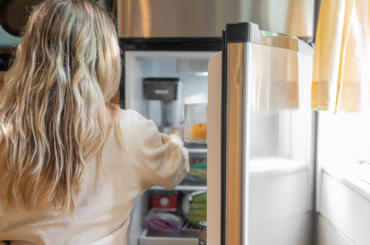About 2.7 million children are being raised by their grandparents as primary caregivers. The most common reasons that so many kids live with their grandparents, and not with their parents, can include opioid overdoses and other substance abuse issues, COVID-19 deaths, other illnesses and accidents, incarceration, military service, and economic struggles.
Grandparents who step up to care for the grandchildren who need them — also known as “grandfamilies” — often face unique challenges, but there are also resources out there to support this increasingly common family arrangement.
Challenges for grandfamilies
Grandparents who are raising grandchildren confront the reality of being unexpectedly called on to care for a child, or sometimes multiple children, often while grieving one of their adult children or working through a family crisis. They may also be dealing with an abrupt change in plans and expectations as they geared up for their retired lives.
If grandparents — like most people who aren’t planning to be primarily responsible for a child’s wellbeing — haven’t kept up with the latest developments in realms like discipline techniques, school expectations, infant feeding and sleep guidelines, social media and online safety, and more, the very steep learning curves can be overwhelming. Plus, the kids they’re now responsible for may be dealing with added emotional challenges due to recent disruptions in routine and even family tragedy.
Financially, many grandparents may be struggling to simply care for themselves in retirement — so adding extra household members to feed, clothe, educate, and entertain just adds to the strain. Older adults may also be dealing with their own health issues that can make child rearing (and its costs) even more challenging. Housing can be a significant issue, as grandparents may not have had any extra space available and don’t know what types of living arrangements they’re eligible for.
There are also the complicated legal and institutional processes that older adults may have to suddenly learn to navigate — such as guardianship, adoption, and foster care systems, and the numerous requirements from social services agencies.
Resources available for grandfamilies
Fortunately, every state has programs that can help grandparents who are raising grandchildren, if they know where to look. The programs can include affordable legal services for kinship caregivers navigating the system, food assistance for struggling families, and peer support groups specifically for grandfamilies. Check the resources and information for your state using these GrandFacts: State Fact Sheets for Grandparents and Other Relatives Raising Children.
The grandfamily support groups are “critical,” reported grandfather Eddie O’Brien of Massachusetts, who became legal guardian to his granddaughter while his daughter battled addiction, to NBC Boston. “That saved us,” he said. “Talking to somebody that has experienced it … it just made it a lot easier, more comfortable, easier to open up, easier to cry. And that really helped.”
Besides locally based support groups, the AARP also offers an online discussion group for grandfamilies, as well as other resources and FAQs ranging from housing arrangements to emotional challenges. For kids who have lost a parent, the National Alliance for Children’s Grief offers a comprehensive list of support programs and camps across the country.
ParentsTogether’s guides and scripts on topics like grief, substance abuse and addiction, online safety, peer pressure, and more, can help caregivers of any age as they support kids through challenging times.
Many areas, both urban and rural, now offer grandfamily housing complexes, where grandparents and kids can live together safely and affordably, in the company of other families with a similar structure, with resources for both generations. The Grandfamily Housing Act, currently working its way through Congress, would help create more of this type of housing.
On the federal level, grandparents who receive Social Security benefits will get extra financial support starting in 2023. Children whose parents have died or are unable to work may also be eligible for Social Security benefits. Depending on their incomes, families may also be eligible for Medicaid or the Children’s Health Insurance Program (CHIP), and other forms of government support.
President Biden’s latest budget proposal included adding $20 billion over a decade to encourage “kinship care” over foster care arrangements with strangers, and to support those grandfamilies and kinship care families with social programs and tax credits. Congress has yet to finalize those budget plans.







